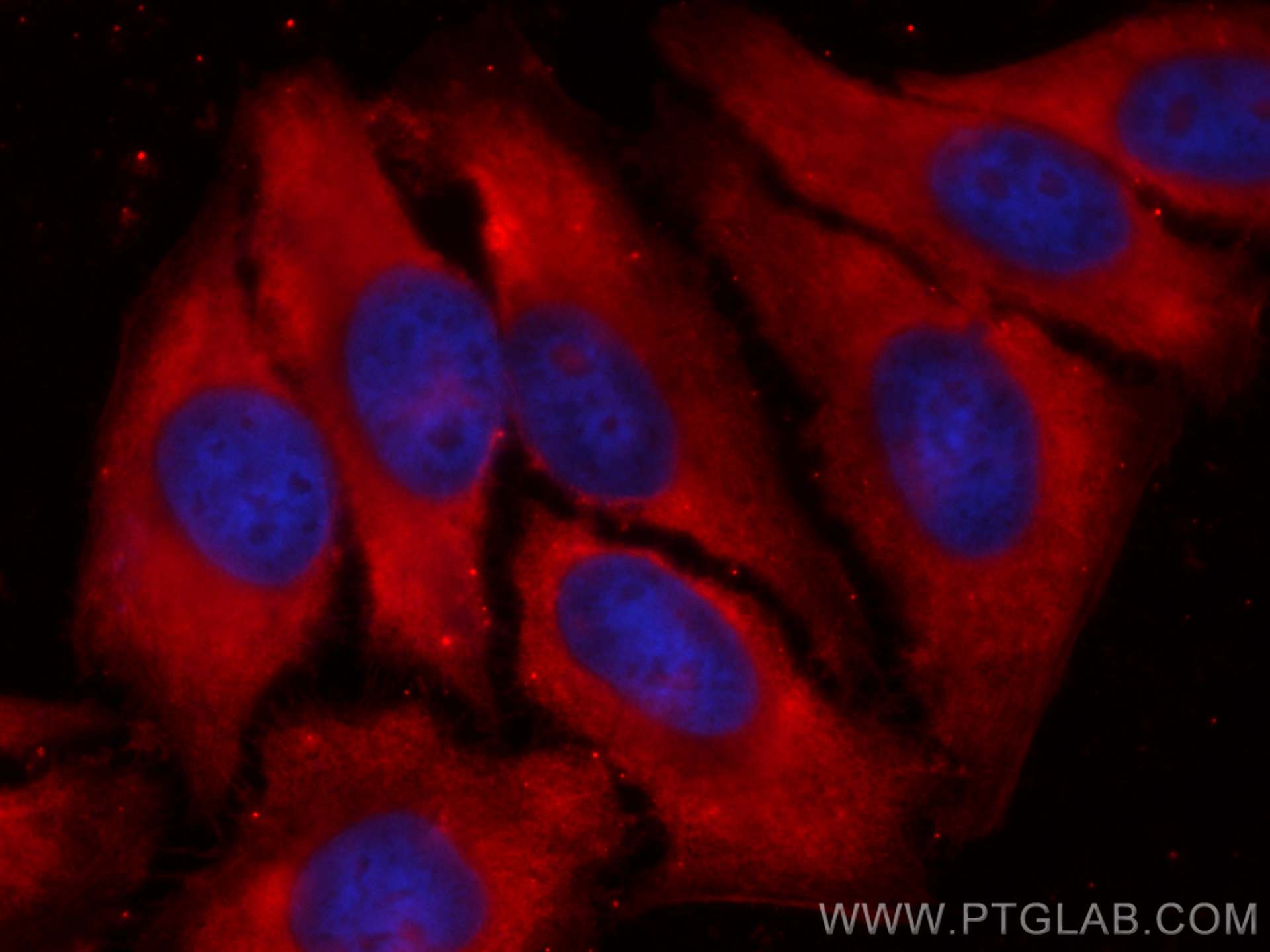- Phare
- Validé par KD/KO
Anticorps Monoclonal anti-PGAM1
PGAM1 Monoclonal Antibody for IF
Hôte / Isotype
Mouse / IgG1
Réactivité testée
Humain, rat, souris
Applications
IF
Conjugaison
CoraLite® Plus 594 Fluorescent Dye
CloneNo.
2H2A9
N° de cat : CL594-67470
Synonymes
Galerie de données de validation
Applications testées
| Résultats positifs en IF | cellules HepG2, |
Dilution recommandée
| Application | Dilution |
|---|---|
| Immunofluorescence (IF) | IF : 1:50-1:500 |
| It is recommended that this reagent should be titrated in each testing system to obtain optimal results. | |
| Sample-dependent, check data in validation data gallery | |
Informations sur le produit
CL594-67470 cible PGAM1 dans les applications de IF et montre une réactivité avec des échantillons Humain, rat, souris
| Réactivité | Humain, rat, souris |
| Hôte / Isotype | Mouse / IgG1 |
| Clonalité | Monoclonal |
| Type | Anticorps |
| Immunogène | PGAM1 Protéine recombinante Ag9250 |
| Nom complet | phosphoglycerate mutase 1 (brain) |
| Masse moléculaire calculée | 254 aa, 29 kDa |
| Poids moléculaire observé | 29 kDa |
| Numéro d’acquisition GenBank | BC011678 |
| Symbole du gène | PGAM1 |
| Identification du gène (NCBI) | 5223 |
| Conjugaison | CoraLite® Plus 594 Fluorescent Dye |
| Excitation/Emission maxima wavelengths | 594 nm / 615 nm |
| Forme | Liquide |
| Méthode de purification | Purification par protéine G |
| Tampon de stockage | PBS avec glycérol à 50 %, Proclin300 à 0,05 % et BSA à 0,5 %, pH 7,3. |
| Conditions de stockage | Stocker à -20 °C. Éviter toute exposition à la lumière. Stable pendant un an après l'expédition. L'aliquotage n'est pas nécessaire pour le stockage à -20oC Les 20ul contiennent 0,1% de BSA. |
Informations générales
PGAM1(phosphoglycerate mutase 1) is also named as PGAMA,PGAM-B and belongs to the phosphoglycerate mutase family. Phosphoglycerate mutase is widely distributed in mammalian tissues where it catalyzes the reversible reaction of 3-phosphoglycerate (3-PGA) to 2-phosphoglycerate (2-PGA) in the glycolytic pathway. The homodimer PGAM1 is expressed mainly in liver, kidney, brain and overexpressed in a variety of human cancers, including breast carcinoma, colorectal cancer, lung cancer, prostate cancer, oral squamous cell carcinoma, esophageal squamous cell carcinomas and also associated with certain virus infection. PGAM1 could be developed as a useful diagnostic biomarker, as well as a potential therapeutic target for hepatocellular carcinoma (PMID:20403181). This antibody may also recognize PGAM2 and PGAM4 due to the high homology.
Protocole
| Product Specific Protocols | |
|---|---|
| IF protocol for CL Plus 594 PGAM1 antibody CL594-67470 | Download protocol |
| Standard Protocols | |
|---|---|
| Click here to view our Standard Protocols |


